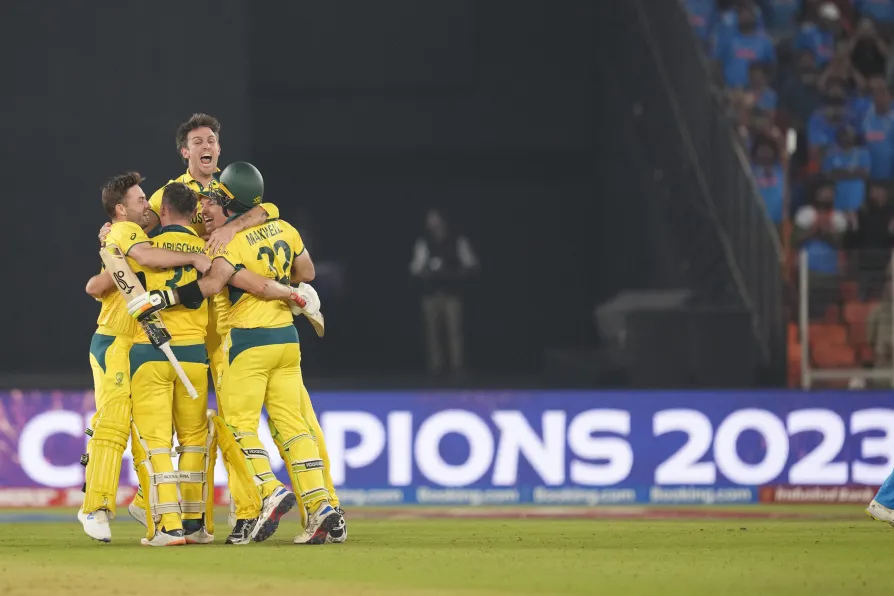
 Australia' players celebrate after Australia won the ICC Men's Cricket World Cup final match against India in Ahmedabad, India, November 19, 2023
Australia' players celebrate after Australia won the ICC Men's Cricket World Cup final match against India in Ahmedabad, India, November 19, 2023
THE 2024 Wisden features some of the finest writers on cricket. The socialist Hilary Beckles sits alongside Gideon Haigh, Michael Collins, Sharda Ugra, and Jonathan Liew among others pontificating on the state of the game.
And what a state! The World Cup, held in India, “had often felt like a celebration of their superpower status.” An international tournament hosted few overseas fans, on pitches that were changed at the last minute without the consent of the International Cricket Council (ICC), the organisation responsible for running the show.
Jingoism was the nature of the day and trumpeted the governing Bharatiya Janata Party’s pet tropes: hyper-nationalism, and anti-Pakistan/Muslim sentiment.

JON GEMMELL presents his annual review of ’the bible of cricket,’ which provides insight into the sport, and its social, economic and political setting












